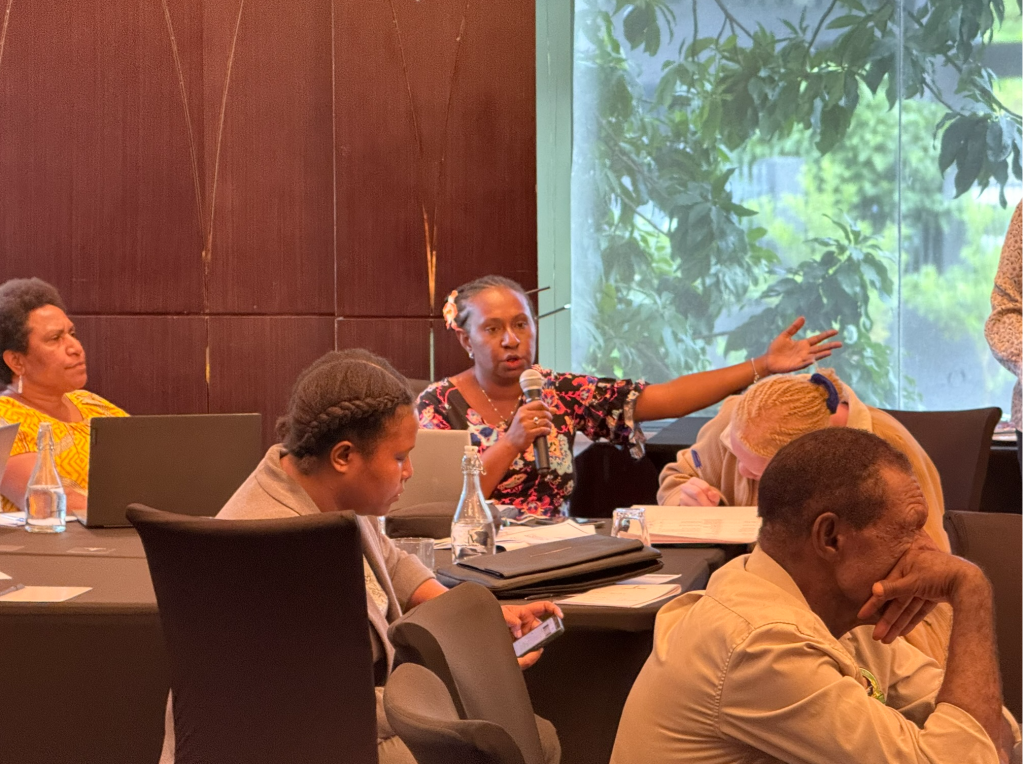
Key stakeholders from across government, industry —including plastic manufacturers, importers, and distributors—civil society and academia gathered today at the Lamana Hotel in Port Moresby, for a National Stakeholder Workshop to assess and strengthen Papua New Guinea’s regulatory approach to managing single-use plastics.
The workshop was convened by the PNG’s Conservation and Environment Protection Authority (CEPA) and the Secretariat of the Pacific Regional Environment Programme (SPREP) through the Australian Government-funded Pacific Ocean Litter Project (POLP).
Plastic waste and pollution from single-use plastics remain a highly visible problem in Papua New Guinea. Although a ban exists on the importation and manufacture of non-biodegradable plastic bags, there are ongoing issues with enforcement, industry uncertainty and an escalating plastic pollution crisis.
Papua New Guinea has the highest coastal population in the Pacific Islands. In 2024, the country generated an estimated 285,100 tonnes of macroplastic waste, of which approximately 161,400 tonnes, or 57%, is believed to have escaped into the environment as pollution.
Without further intervention, projections indicate that more than 2.3 million tonnes of plastic waste, equivalent in weight to 12,500 jumbo jets, could be released into PNG’s environment between 2024 and 2035.
“The issue of plastic pollution has become a national crisis. This workshop provides a valuable platform for us to revisit the existing regulatory regime and identify ways we can improve it to better protect our environment and communities,”
”We need to strengthen collaboration across sectors, validate enforcement roles, and ensure there is greater consistency and accountability in how we manage plastic waste in PNG. Our goal is a cleaner, healthier Papua New Guinea, and that starts with strong, practical policies and collective action, said Mr Brendan Trawen, the Acting Director of the Renewable Resource Environment Protection Wing at CEPA.

Participants discussed a range of issues, including improved enforcement, industry engagement, public education and awareness, and opportunities to regulate other forms of single-use plastics beyond plastic bags. The workshop also provided a platform for stakeholders to share experiences, offer recommendations, and commit to coordinated action.
POLP is a regional initiative supporting Pacific Island countries in phasing out single-use plastics. Today’s workshop forms part of a broader effort to combat plastic pollution in PNG, which also includes public awareness campaigns, education, behaviour change, collaboration with businesses, and the promotion of sustainable alternatives.
“The Pacific Ocean Litter Project is proud to support Papua New Guinea in tackling plastic pollution. Through workshops like this, we can help create practical and sustainable solutions that align with national priorities and global commitments,” said Mr. Andrea Volentras, the Project Manager for POLP.
The outcomes of the workshop will inform the review and potential revision of PNG’s plastic regulations and guide the next steps in the country’s broader plastic waste management strategy.
The national stakeholder workshop follows a policy workshop on the development of a National Action Plan to address plastic pollution in PNG. During that session, UK-based organisation Common Seas presented baseline findings on plastic waste generation and projections of plastic leakage under a ‘business-as-usual’ scenario for the next decade.
Participants then explored a range of potential policy interventions, discussing their likely impact and how they could be implemented over time. The partnership with Common Seas was facilitated by SPREP.